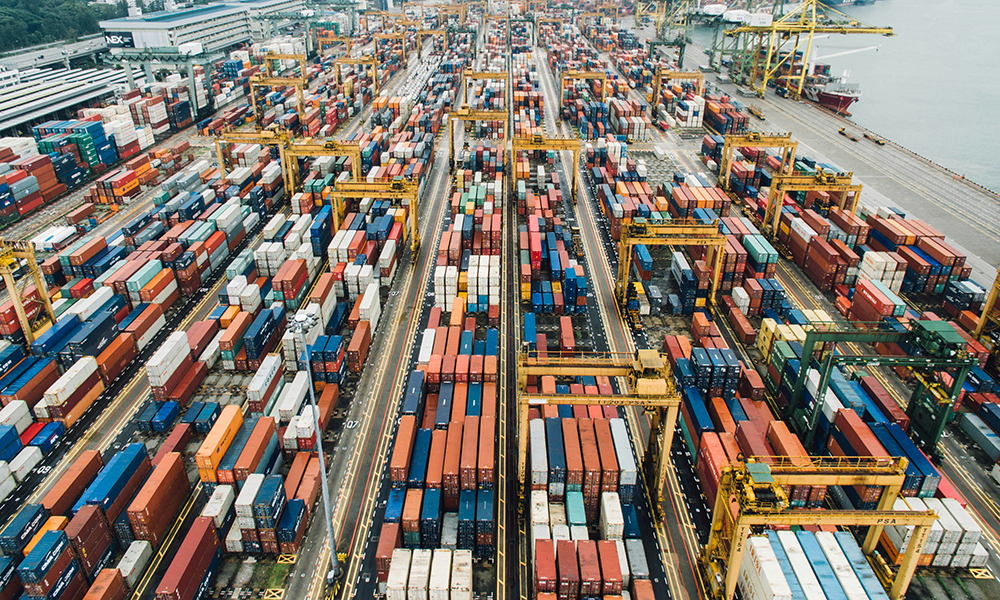Top Stories
UBC Okanagan Unveils AI Framework to Boost Supply Chain Resilience

URGENT UPDATE: Researchers at UBC Okanagan have just announced a groundbreaking AI-based framework aimed at enhancing supply chain resilience amid escalating global tensions and disruptions. The study, published in Computers & Operations Research, reveals a model that empowers organizations to make critical decisions regarding order scheduling, production planning, and inventory management under extreme conditions.
As international supply chains face unprecedented challenges from trade disputes, natural disasters, and pandemics, this innovative framework offers a timely solution. It combines operations research, machine learning, and artificial intelligence to assist leaders in navigating uncertainties effectively and cost-efficiently.
According to Dr. Mahsa Mohammadi, a lecturer in the School of Engineering, “Resilience is often discussed in broad terms, but our framework translates it into measurable financial decisions.” The model evaluates various strategies—like multi-sourcing, consignment inventory, and long-term contracts—to determine which options provide the best service improvements per dollar spent, even when tariffs and unexpected delays arise.
The research team, including Dr. Babak Mohamadpour Tosarkani, conducted extensive simulations of global disruptions, such as supplier shutdowns and shipping delays. Their findings are striking: investments in diverse suppliers and coordinated inventory management can reduce disruption costs by nearly 30 percent and enhance recovery times compared to reactive strategies.
Companies are advised to allocate just 10 to 15 percent of their budgets to resilience measures, which could include shared contracts or local production initiatives. This strategic investment could significantly lower overall risks associated with supply chain vulnerabilities.
Beyond corporate implications, the framework provides critical insights for policymakers and funding agencies. “Public investments yield the greatest results when directed toward the supply chain elements most at risk of failure,” says Dr. Tosarkani. The model identifies at-risk components and guides decision-makers toward preventative interventions that could avert system-wide disruptions.
The research also sheds light on how traditional cost-cutting strategies, such as bulk purchasing during tariff uncertainty, can inadvertently inflate inventory costs. Instead, the team recommends a balanced approach that integrates adaptive inventory management with enhanced data sharing among supply chain partners.
“Resilience should be viewed as a strategic strength, not an added cost,” emphasizes Dr. Mohammadi. By leveraging AI and optimization tools, organizations can assess their preparedness and make informed investment choices.
This urgent development not only promises to reshape supply chain management but also aims to fortify businesses against future crises. As global conditions continue to evolve, the implementation of this framework could be pivotal for companies striving for sustainability and efficiency.
Stay tuned for more updates on this developing story, as the implications of UBC Okanagan’s research could reverberate across industries worldwide.
-

 Politics1 month ago
Politics1 month agoSecwepemc First Nation Seeks Aboriginal Title Over Kamloops Area
-

 World5 months ago
World5 months agoScientists Unearth Ancient Antarctic Ice to Unlock Climate Secrets
-

 Entertainment5 months ago
Entertainment5 months agoTrump and McCormick to Announce $70 Billion Energy Investments
-

 Lifestyle5 months ago
Lifestyle5 months agoTransLink Launches Food Truck Program to Boost Revenue in Vancouver
-

 Science5 months ago
Science5 months agoFour Astronauts Return to Earth After International Space Station Mission
-

 Lifestyle3 months ago
Lifestyle3 months agoManitoba’s Burger Champion Shines Again Amid Dining Innovations
-

 Technology4 months ago
Technology4 months agoApple Notes Enhances Functionality with Markdown Support in macOS 26
-

 Top Stories2 months ago
Top Stories2 months agoUrgent Update: Fatal Crash on Highway 99 Claims Life of Pitt Meadows Man
-

 Top Stories2 weeks ago
Top Stories2 weeks agoHomemade Houseboat ‘Neverlanding’ Captivates Lake Huron Voyagers
-

 Politics4 months ago
Politics4 months agoUkrainian Tennis Star Elina Svitolina Faces Death Threats Online
-

 Sports5 months ago
Sports5 months agoSearch Underway for Missing Hunter Amid Hokkaido Bear Emergency
-

 Politics5 months ago
Politics5 months agoCarney Engages First Nations Leaders at Development Law Summit





















